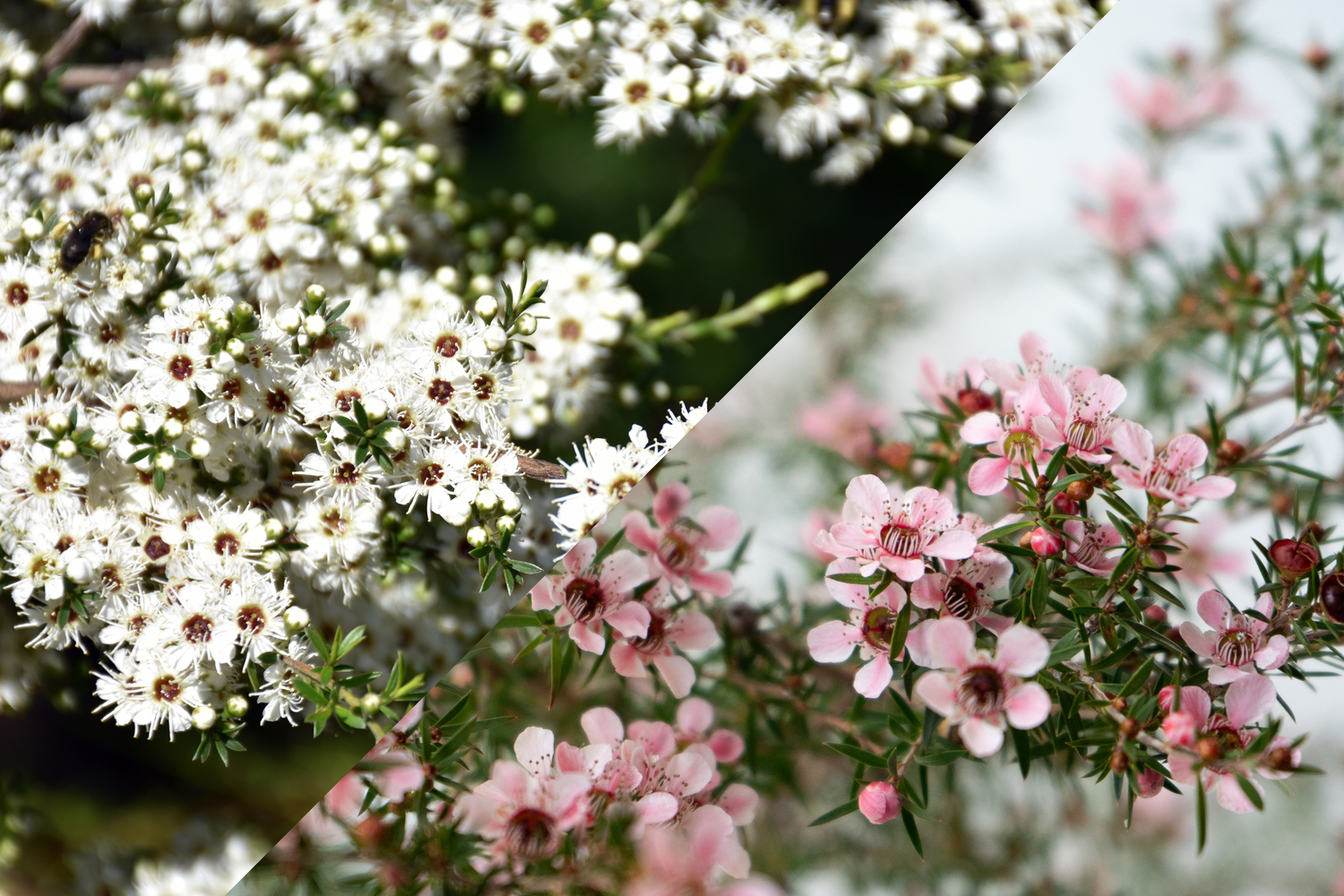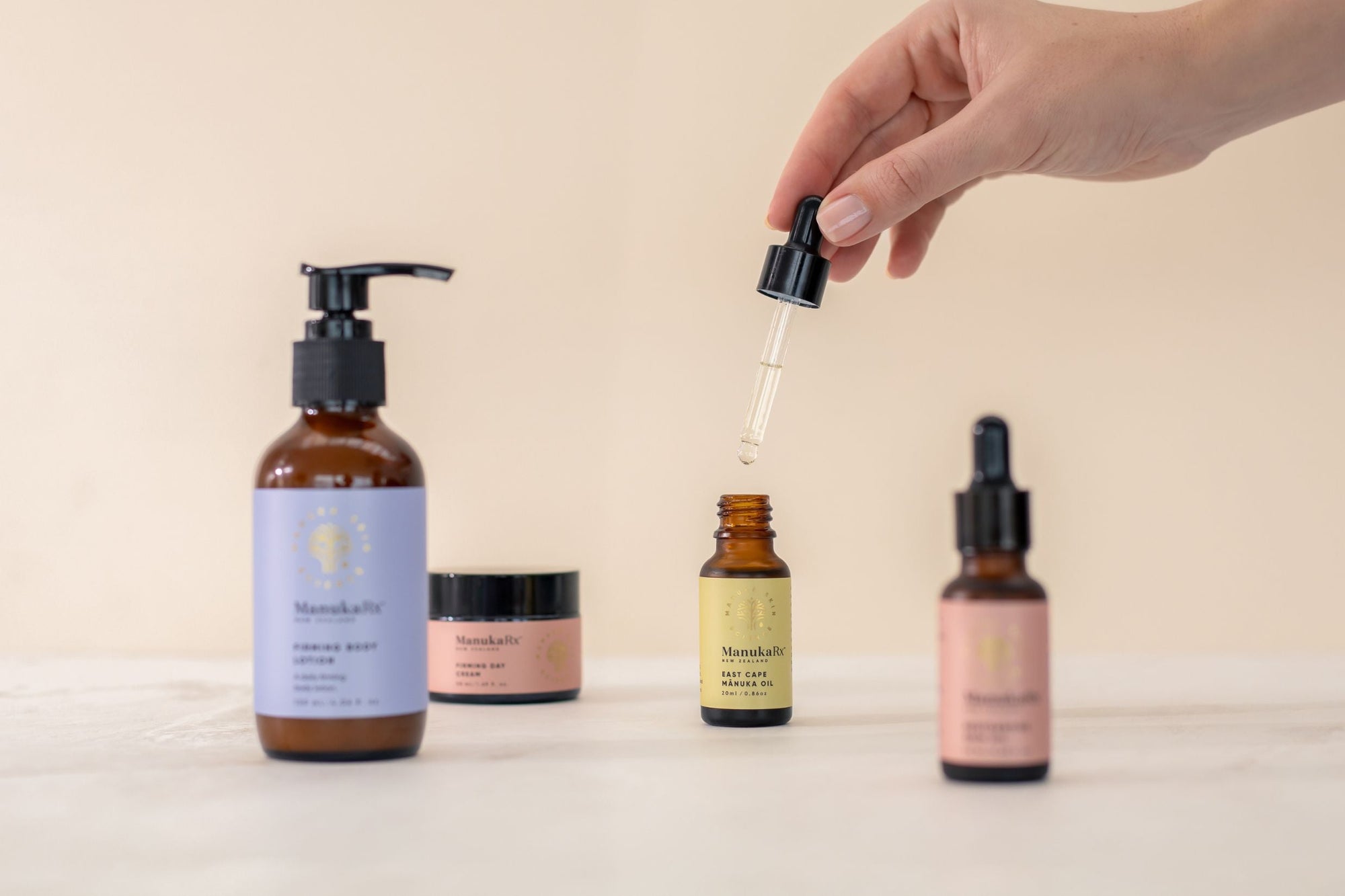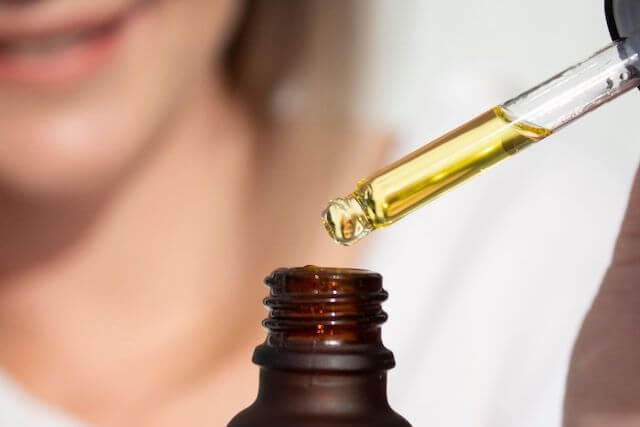The manuka flower, native to New Zealand and parts of Australia, is renowned for its significant benefits and diverse uses. Known scientifically as Leptospermum scoparium, this plant plays a crucial role in producing the highly valued manuka honey.
Less known, though, are the potent restorative properties of manuka oil. Research conducted by New Zealand’s Cawthron Institute found that the essential oil is 1000 times more powerful than honey!
Here’s everything you need to know about the plant responsible for all manuka products.
The Mānuka Plant
Manuka, also referred to as the broom tea tree, is a hardy plant. Its evergreen shrub can grow up to 4 metres tall, even becoming a moderately sized tree. It's characterised by its dense branching, small leaves and distinctive white (and occasionally pink-looking) flowers.
The plant is identifiable by its red wood and prickly nature, and it often features a short spine tip on its leaves.
Growing Conditions
Manuka is a prolific shrub-type tree that thrives in full sun and well-drained soil. It is commonly found in the remote regions of New Zealand, and is particularly associated with the East Cape region of the North Island. It often grows on cleared land where it is one of the first species to establish. The plant is well-suited to withstand harsh conditions, making it a resilient addition to gardens and natural landscapes.

A Short Flowering Window
The white, five-petaled manuka flowers only bloom for two to six weeks each summer. During this brief window, they attract bees that collect the nectar and pollen to produce manuka honey. This honey is known for its high levels of methylglyoxal (MGO), which gives it unique antimicrobial properties. Manuka honey is used in various medicinal and skincare products.
The Many Uses of Mānuka
Historical Uses
Indigenous Māori healers harvested the leaves and flowers of the manuka plant to make medicinal teas and other remedies for treating fevers, digestive issues, coughing and respiratory conditions.
Early European settlers, including Captain Cook, brewed manuka leaves as a substitute for tea leaves. They called manuka “tea tree” for this reason, though that name is now more often used to refer to the Australian tea tree bush.
Modern Medicinal Uses
Manuka is naturally rich in compounds that contribute to the essential oils of the plant, as well as to the honey derived from its flowers. These products are widely used for medicinal purposes due to their proven antimicrobial, anti-fungal and anti-inflammatory properties.
For instance, manuka honey and manuka oil are both effective at healing minor burns and wounds, treating skin infections, soothing irritated skin, managing acne, and boosting the immune system.
Mānuka Honey
Bees produce manuka honey from the nectar of manuka flowers. As manuka honey can only be made in New Zealand, its supply is limited. This makes it scarcer and more expensive compared to honeys made from other flowers.
Genuine manuka honey must be tested and appropriately labelled, indicating its New Zealand origin and authenticity. The product’s packaging should state a quality rating, such as a methylglyoxal (MGO) or Unique Mānuka Factor (UMF) rating, which indicate the honey’s tested levels of purity and potency – the higher the number, the more powerful the honey’s antimicrobial properties.
Mānuka Essential Oil
Naturally extracted through the steam distillation of manuka leaves, manuka essential oil is an effective healing oil used for various medicinal purposes. Due to its protective and restorative qualities, it makes a potent active ingredient in skincare products and promotes healthy, clear skin.
Pollination
The manuka flower plays a crucial role in supporting bee populations by providing a rich source of nectar and pollen. Bees that visit the manuka flower help sustain the manuka honey industry, which is highly valued worldwide.

Forest Regeneration
Manuka is a pioneer species that helps restore landscapes after deforestation. It takes hold quickly in disturbed soils, providing protection for other plant species as they begin to grow.
A Few More Interesting Facts
Ecological Importance
Manuka plays a significant role in forest regeneration, particularly in New Zealand. It is one of the first species to colonise cleared land, helping to stabilise the soil and provide habitat for other plants and animals.
The plant's dense branching offers protection to smaller plants and its seed capsules ensure the proliferation of the species.
Beekeeping and Honey Production
Beekeepers in New Zealand cultivate manuka plants to produce manuka honey, which is famous and highly sought after worldwide. The bees act as pollinators for manuka flowers and are crucial for the honey production process, resulting in honey that is both medicinal and delicious.
The presence of sooty mould and scale insects can sometimes affect the quality of the honey, but careful management ensures a healthy harvest.
Mānuka in Gardens
Manuka is also a popular choice for gardens due to its hardy nature and attractive appearance. It can be planted as a decorative shrub or a small tree, adding beauty and ecological benefits to garden spaces.
The plant’s fast-growing nature, ability to thrive in various soil conditions and its resistance to pests make it an ideal choice for anyone looking to establish a healthy, vibrant garden.

More Than Just a Beautiful Flower
Manuka is a vital part of New Zealand’s ecosystem and a powerhouse of medicinal benefits. From producing the beloved manuka honey to its role in ecological restoration, the manuka flower remains an important species in both natural and cultivated landscapes.
To find out more about the potent restorative powers of manuka, check out this fascinating guide to the properties of manuka oil.






